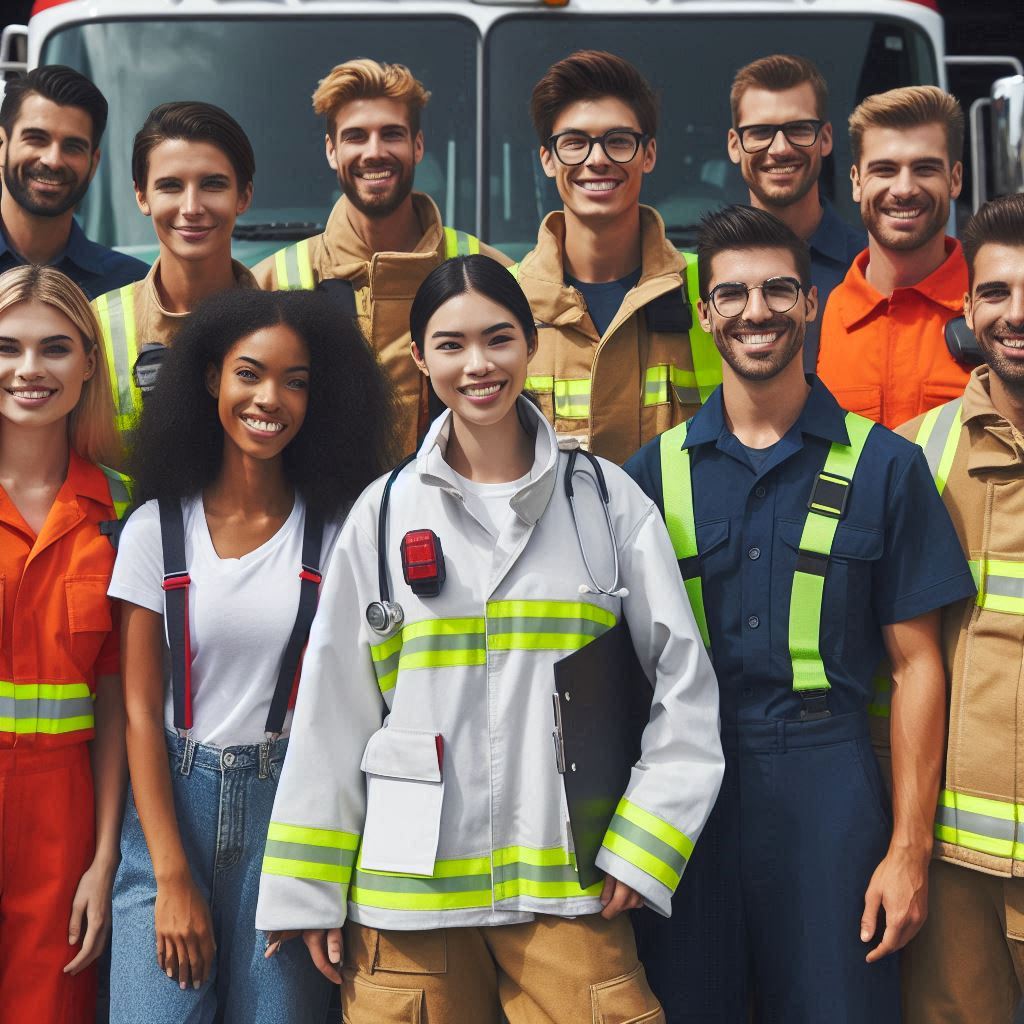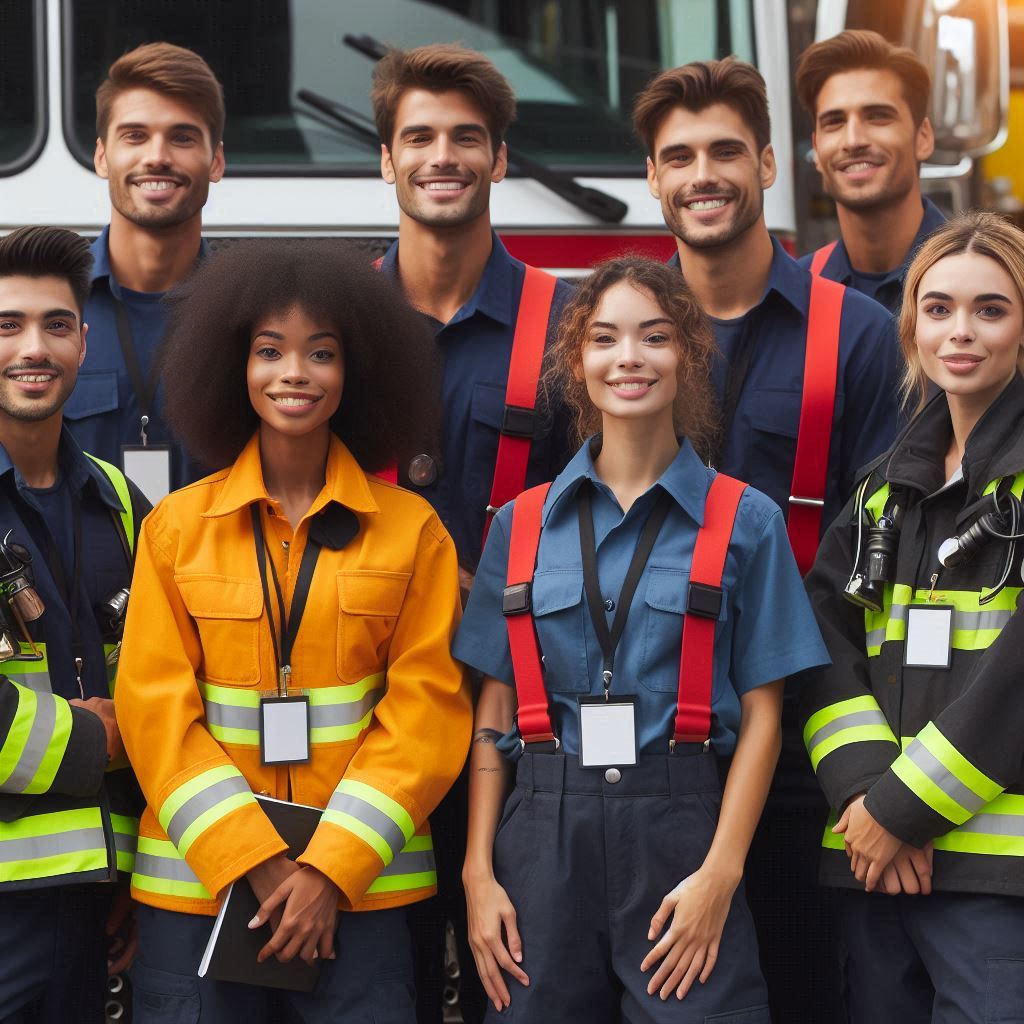
Volunteering for a fire department is not just a commitment; it’s a calling that requires courage, resilience, and a deep-seated desire to serve the community. Firefighters represent a critical line of defense against danger, and volunteer firefighters are integral to the emergency services landscape, especially in smaller towns and rural areas. This article will provide a detailed guide on why volunteering is essential, how to become a volunteer firefighter, the training involved, the challenges and rewards of the role, and the profound impact volunteers have on their communities.
Importance of Volunteer Fire Departments
Community Safety
Volunteer fire departments are often the backbone of emergency services in many communities, providing essential fire protection and emergency response capabilities. They play a crucial role in safeguarding lives and property, especially in areas where funding for full-time departments may be limited. In fact, volunteer firefighters respond to a significant percentage of all fire and rescue calls in the United States.
Building Community Bonds
Joining a volunteer fire department fosters strong community ties. Volunteers come from various backgrounds but share a common goal: to protect and serve. These shared experiences create lasting friendships and a sense of belonging. The relationships formed within the department extend to the broader community, fostering trust and collaboration between citizens and emergency services.
Understanding Volunteer Fire Departments
Definition and Structure
Volunteer fire departments consist of individuals who willingly offer their time to respond to fires and other emergencies. Unlike career firefighters, who are employed full-time, volunteers typically have other jobs or commitments but dedicate their time to community service during emergencies.
Most volunteer fire departments have a structured organization, including a chief and various officers who oversee specific functions such as training, operations, and community outreach. This hierarchy ensures a well-organized response to emergencies and effective management of resources.
Types of Volunteer Roles
Volunteers may take on various roles within a fire department, including:
- Firefighter: Engaging in fire suppression, rescue operations, and emergency medical response.
- Emergency Medical Technician (EMT): Providing medical assistance during emergencies, often a crucial first response action.
- Fire Prevention Educator: Conducting safety inspections, engaging in community education, and promoting fire prevention initiatives.
- Support Roles: Contributing to administration, logistics, fundraising, and public relations efforts.
Why You Should Volunteer for a Fire Department
Personal Fulfillment
One of the most rewarding aspects of volunteering for a fire department is the deep sense of personal fulfillment. Knowing that your efforts contribute to the safety and well-being of your community can be incredibly gratifying. Many volunteers cite improving their self-esteem and gaining purpose as key reasons for their commitment.
Skill Development
Volunteering allows individuals to acquire various skills that are valuable both in firefighting and beyond. Training may include:
- Fire suppression techniques
- Emergency medical response
- First aid and CPR
- Leadership and teamwork skills
- Public speaking and community engagement
These skills can serve you well in emergencies outside the fire service and can enhance your career prospects in other fields.
Community Service
Volunteering for a fire department is a profound act of service to your community. It promotes a culture of responsibility, encouraging individuals to stand up for each other’s safety. This altruism can foster civic pride and encourage others to engage in community service.
How to Join a Volunteer Fire Department

Understanding Eligibility Criteria
Before applying to a volunteer fire department, it’s important to understand the typical eligibility criteria:
- Age Requirement: Most departments require volunteers to be at least 18 years old. Some allow younger individuals to join as junior firefighters with parental consent.
- Physical Fitness: Firefighting is physically demanding; volunteers may need to pass a physical fitness test.
- Background Check: A criminal background check is standard procedure to ensure the safety of the community.
The Application Process
- Research Local Departments: Start by finding volunteer fire departments in your area. Many have websites that provide information about joining.
- Contact the Department: Reach out to express your interest, ask questions, and understand the specific application process.
- Submit an Application: Fill out the application form, providing details about your background, motivations for volunteering, and availability.
- Interview Process: Some departments may hold interviews or assessments to gauge your fit for the team and commitment to training.
- Training: Once accepted, you will undergo an extensive training program where you’ll learn firefighting techniques, emergency medical response, and safety protocols.
Training and Skill Development
Firefighting Techniques
Volunteer firefighters participate in rigorous training programs covering essential firefighting skills such as:
- Fire suppression methods
- Equipment handling and maintenance
- Rescue techniques and safety protocols
- Hazardous materials handling
Training typically combines classroom instruction with hands-on drills, ensuring that volunteers are well-prepared for emergency situations.
Emergency Medical Training
Many fire departments offer emergency medical training, which may include First Aid Certification, CPR, and advanced medical response techniques. This training empowers volunteers to act decisively and effectively during medical emergencies, enhancing the overall response capabilities of the department.
Balancing Volunteering with Daily Life
Time Management
Balancing volunteer commitments with work and family life can be challenging. Effective time management is crucial. Here are some tips:
- Plan Ahead: Use calendars to coordinate volunteer shifts with personal obligations.
- Communicate: Keep open lines of communication with your family and employer to manage expectations.
Family and Work Considerations
Support from family and understanding from employers can significantly ease the volunteering experience. Engage with loved ones about your commitments, ensuring everyone is on the same page regarding your time dedicated to volunteer work.
Challenges and Rewards of Volunteering
Overcoming Obstacles
Volunteering can present challenges, including time commitments and exposure to dangerous situations. Overcoming these challenges requires resilience and a strong commitment to serving the community.
Celebrating Achievements
Recognizing and celebrating achievements—whether through community appreciation events or internal recognition—fosters a positive environment within the fire department. Celebrations of big and small successes contribute to team morale and a sense of accomplishment.
Impact of Volunteer Fire Departments
Community Safety
Volunteer fire departments play a vital role in ensuring community safety, providing immediate response capabilities that mitigate risks. Their presence can often mean the difference between minor incidents and catastrophic events.
Emergency Response
The swift response capability of volunteer fire departments is crucial. Volunteers are often the first responders in emergencies, showcasing their readiness to protect lives and property.
Adapting to Varied Roles and Responsibilities
Embracing Diversity in Responsibilities
Volunteering for a fire department involves various roles, each presenting unique challenges and responsibilities. Embracing the range of tasks ensures a fulfilling experience and a well-rounded skill set.
Adaptability
Merging different roles demands adaptability; volunteer firefighters must be ready to switch tasks based on the immediate needs of the situation. This versatility enhances the department’s effectiveness during emergencies.
The Human Connection in Volunteering
Bonding with Fellow Volunteers
The relationships formed among volunteer firefighters are often profound. Trust and camaraderie are essential for effective teamwork. Shared experiences create bonds that last beyond the firehouse.
Building Trust in the Community
Establishing trust with the community is paramount. Engaging in community events helps volunteer fire departments build connections and foster a sense of safety among residents.
Preparing for Bursts of Activity
Team Coordination
During emergencies, effective team coordination is critical. Volunteer fire departments prioritize seamless communication and collaboration to address incidents efficiently.
Preparedness
Regular drills and ongoing training are essential for managing bursts of activity. Preparedness equips volunteers to handle the unpredictable nature of emergencies consistently.
Personal Experiences and Stories
Sharing Narratives
Hearing personal stories from volunteer firefighters sheds light on the challenges faced and the significant impact they make on lives. Such narratives provide essential insights into the emotional and physical demands of the role.
Highlighting Impactful Rescues
Stories of successful rescues and interventions highlight the tangible differences that volunteer firefighters make in their communities, reinforcing the importance of their work.
Promoting Volunteerism
Building Awareness
Promoting the significance of volunteer fire departments encourages others to join. Advocacy, education, and outreach efforts help foster a culture of volunteerism.
Community Outreach
Engaging in community outreach initiatives allows volunteer fire departments to connect with residents, fostering a sense of shared responsibility for safety and well-being.
Conclusion
Volunteering for a fire department is an immensely rewarding journey that offers personal fulfillment, skill development, and the chance to make a meaningful impact. The dedication of these volunteers ensures the safety and well-being of communities, and if you consider joining, take the leap. The sense of pride, camaraderie, and fulfillment you gain will be invaluable.
Related FAQs
Q: Can I volunteer for a fire department if I have no prior experience?
A: Yes, many volunteer fire departments provide training for newcomers, allowing those without prior experience to get involved.
Q: How much time commitment is required for volunteering?
A: Time commitments can vary, but many departments offer flexible schedules to accommodate volunteers’ personal lives.
Q: Are there age restrictions for joining a volunteer fire department?
A: Age requirements differ, but many departments welcome volunteers of various ages, emphasizing fitness and enthusiasm over age.
Q: Do volunteer firefighters receive any compensation?
A: Volunteer firefighters usually do not receive monetary compensation, but the intrinsic rewards of serving the community are substantial.
Q: How can I encourage others to join a volunteer fire department?
A: Share your experiences, participate in community events, and raise awareness about the critical work of volunteer fire departments to inspire others.
